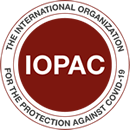The World Health Organization (WHO) and the International Olympic Committee (IOC) today signed an agreement to work together to promote health through sport and physical activity.”I am pleased to formalize this longstanding partnership with the International Olympic Committee,” said Dr Tedros Tedros Adhanom Ghebreyesus, WHO Director-General. “WHO works not only to respond to disease but also to help people realize their healthiest lives and this partnership will do exactly that. Physical activity is one of the keys to good health and well-being.”This collaboration is timely. The current COVID-19 pandemic is particularly affecting people with noncommunicable diseases (NCDs). The agreement has a special focus on preventing NCDs through sport. Physical activity helps lower blood pressure and reduce the risk of hypertension, coronary heart disease, stroke, diabetes, and various types of cancer (including breast cancer and colon cancer). Other areas of collaboration include working with host countries to ensure the health of athletes, supporters and workers at the games as well as addressing NCD risk factors, including water quality and air pollution. The two institutions will also work to ensure that the games leave a healthy legacy in host countries through enhanced awareness of the value of sport and physical activity.The two organizations also intend to work together promote grassroots and community sports programmes that have a further reach within the general public, particularly among girls, older people and people living with disability who may find it harder to keep active and healthy.“Over the last few months in the current crisis, we have all seen how important sport and physical activity are for physical and mental health. Sport can save lives,” said IOC President Thomas Bach. “The IOC calls on the governments of the world to include sport in their post-crisis support programmes because of the important role of sport in the prevention of NCDs, but also of communicable diseases.”Globally, WHO estimates that 1 in 4 adults is not active enough and more than 80% of the world’s adolescent population is insufficiently physically active. The new partnership will bring together the sports and health sectors at international, regional and national levels to reach global goal of increasing physical activity by 15%, as set out in the Global Action Plan on Physical Activity.
